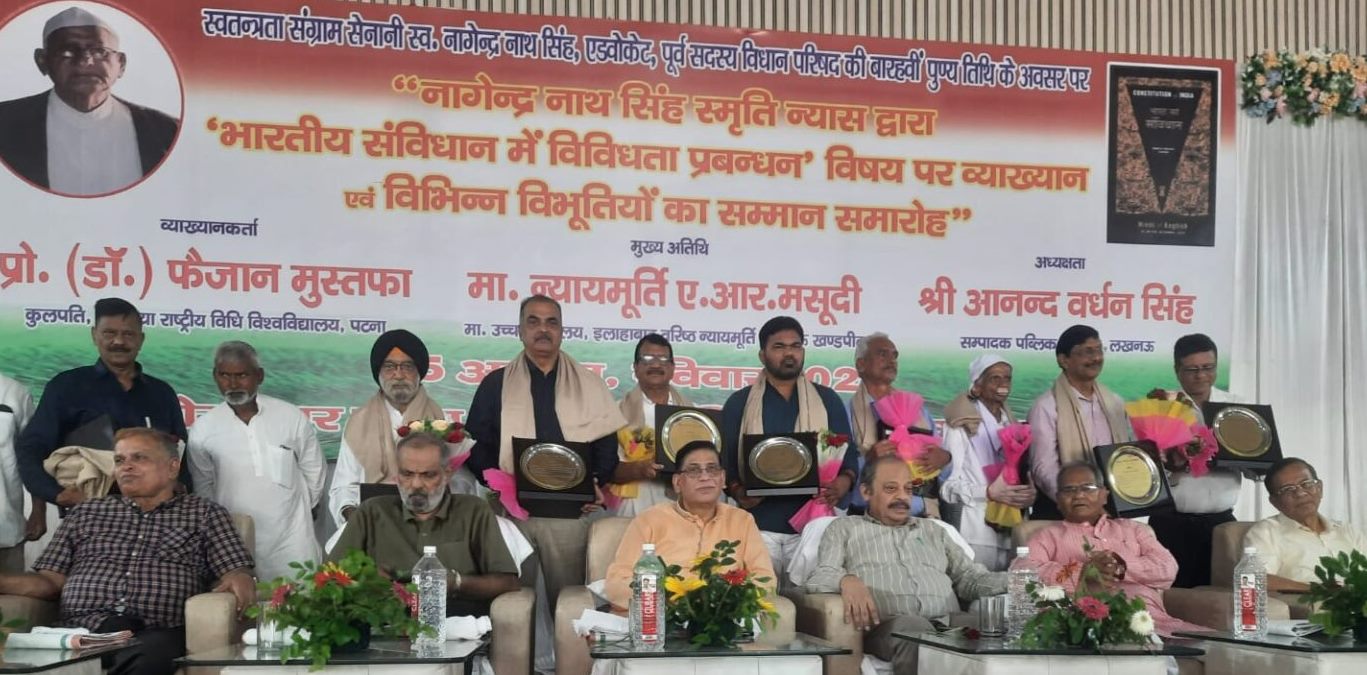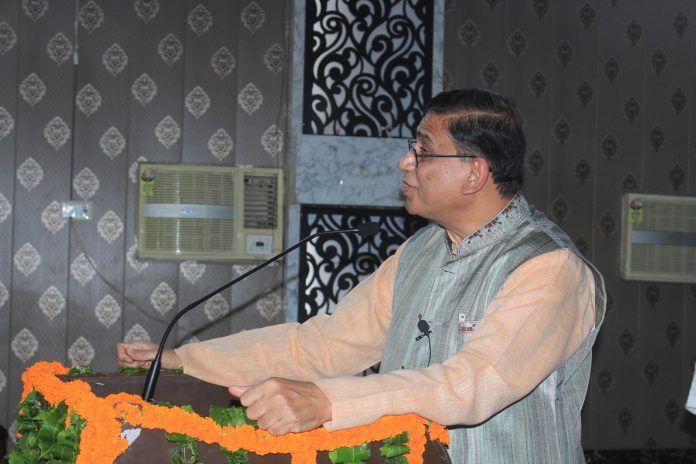Gorakhpur, Aug 27: During the recent Nagendra Nath Singh Memorial Lecture and Felicitation Ceremony, Prof. Faizan Mustafa, Vice Chancellor of Chanakya National Law University in Patna and a renowned constitutional expert, underscored the vital importance of secularism and diversity management for ensuring freedom of religion in India.
Delivering a lecture titled “Diversity Management in Indian Constitution,” Prof. Mustafa emphasized that if India were to be accurately defined in a single word, that word would be “diversity.” He stated, “The Constitution of India has set the standards for managing this diversity, with the goal of ensuring participation in governance and care for all, thereby fostering brotherhood. Diversity management is essential for achieving this sense of brotherhood.”
He further argued that those who oppose this ideal of brotherhood are, in fact, acting against the nation and the Constitution. “The real anti-nationals are those who work to divert the country from the constitutional goals set for the nation,” he asserted.
Prof. Mustafa highlighted that the Indian Constitution has managed the nation’s diversity through various means, including federalism, secularism, reservation policies, and the protection of rights for religious and linguistic minorities, women, and marginalized communities. He pointed out that India, as a multilingual, multi-religious, and multi-ethnic country, requires these measures for its cohesive functioning.
Prof. Mustafa also addressed the importance of secularism, explaining that it signifies a state without an official religion. “The state should neither promote nor discriminate against any religion; it must maintain an equal distance from all,” he noted. He argued that secularism is necessary to safeguard religion from state interference. This makes secularism essential for preserving religious freedom.
He also referenced the Kesavananda Bharati case, in which the Supreme Court declared secularism to be a fundamental aspect of the Indian Constitution, even before the term was formally included.
 On the subject of reservation, Prof. Mustafa remarked that it serves as a critical tool for managing diversity, particularly for Dalits and backward communities who have suffered from centuries of exploitation. He criticized recent judicial decisions that have sought to limit reservations, such as identifying the “creamy layer” and restricting reservations in promotions, arguing that these measures politicize the Constitution’s intent.
On the subject of reservation, Prof. Mustafa remarked that it serves as a critical tool for managing diversity, particularly for Dalits and backward communities who have suffered from centuries of exploitation. He criticized recent judicial decisions that have sought to limit reservations, such as identifying the “creamy layer” and restricting reservations in promotions, arguing that these measures politicize the Constitution’s intent.
Sudhanshu Mani, former General Manager of Integral Coach Factory and architect of the Vande Bharat Train Scheme, spoke on the importance of diversity management in rail operations. He emphasized that rail travel should be accessible and dignified for all citizens, not just the affluent, as true development can only be achieved when every section of society progresses.
Senior journalist and Public India editor Anand Vardhan Singh, who presided over the event, dismissed discussions about a Secular Civil Code as irrelevant, emphasizing that India’s soul lies in its diversity. He warned that any harm to this diversity is an attack on the nation itself.




